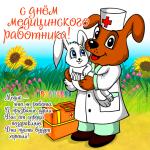Helping parents and relatives of drug addicts is an important part of drug rehabilitation; it is an integral part of the recovery process. Parents and relatives of addicted people are codependent with them and need help no less than their children. After all, they have been living next to a drug addict for a long time and are in an atmosphere of constant negativity associated with drug use.
Consulting assistance
In the practice of the Al-Amin Foundation, there is a wide range of activities to help relatives of addicts. These include free consulting assistance, during which the intra-family situation, the nature of relationships between family members and the mental state of relatives are studied, and referral of codependents to self-help groups and seminars. An important aspect of these classes is to teach codependents not to feel “guilt” in front of a relative who is an alcoholic/drug addict, whom they supposedly “overlooked” by not paying attention to the use of intoxicating substances in time. This will get rid of manipulation by drug and alcohol addicts, who often resort to this “technique”, playing on the feelings of their loved ones.
The Al-Amin Foundation directs and conducts seminars for codependents with the participation of highly professional psychologists, narcologists, and chemical dependency consultants. Their topics are the most relevant - what addiction is and how it is formed, what are the modern and most effective methods of getting rid of the disease, how to behave towards addicts. An individual addiction treatment plan is created. Much attention is paid to the topic of creating a motivational crisis.
Motivational crisis
In some cases, in order to force a drug addict to undergo treatment, they can simply close the doors of their own home. The goal of a crisis is to create the most uncomfortable conditions for a person until he agrees to treatment and rehabilitation.
A motivational crisis is a path that is implemented by the relatives of a drug addict. In order to understand what to do and how, it is necessary to consult with specialists - practitioners in this field. Modern drug addiction often forms and develops quickly and requires immediate intervention. In such a situation, the family on its own cannot quickly resolve the issue of a person’s motivation and a more urgent and radical approach is required. A sudden crisis situation is formed for a drug addict, aimed at placing him in treatment or rehabilitation, sometimes even by “deception” and exaggerating the real severity of the situation, although the term “exaggeration” in this case is very conditional. Drug addiction and alcoholism are serious diseases that can lead to death if left untreated.
Intervention
It is important for codependents to understand what they can do and what needs to be entrusted to a specialist. One of the modern techniques is intervention. There is nothing “terrible” about it. This is emergency and effective assistance aimed at convincing the patient to seek treatment for addiction. Only specialists can use this technique competently and with benefit for the patient, skillfully showing firmness and perseverance, knowledge of the psychology of addicts in convincing the patient, motivating him for treatment and further rehabilitation. The main goal of the intervention is to “open the eyes” of a drug addict or alcoholic to the severity of his real condition and inevitable death in the absence of treatment. At the same time, the patient is motivated for treatment and rehabilitation. Relatives will not be able to apply such techniques on their own.
Selection of a clinic
Codependents are taught how to choose the best option for a drug treatment clinic so that the treatment is professional and anonymous, and does not cause moral and material damage to the addict and his family, studies, career and professional activities. This takes into account age characteristics and religious affiliation, adherence to certain ethical and spiritual standards, and the optimal territorial location of the clinic. Complete confidentiality is maintained.
The Al-Amin Foundation provides assistance in selecting highly professional medical specialists to conduct a detoxification course at home, if this is most preferable in this particular situation.
Specialists of the prevention department of the Al-Amin Foundation are ready to take on the responsibilities of accompanying addicts to the selected medical institution and clinic.
Rehabilitation and selection of a rehabilitation center
After completing a treatment course - if necessary, and experience shows that this is necessary in 90% of cases - the fund's specialists select an individual rehabilitation course, taking into account all the characteristics of a particular addict. This course is developed by Al-Amin Foundation specialists individually for each person. It is known that in order to consolidate the result and obtain stable remission, it is necessary to undergo rehabilitation in a specialized center and it is better to do this away from home, the “usual” places of sale and distribution of alcohol and drugs. For example, a resident of Moscow or Makhachkala may be recommended to undergo a rehabilitation course in Crimea or Kazan, where there are no “familiar” drug dealers or alcohol distribution points, there are no so-called “friends” who encourage the use of intoxicating substances. The most optimal climatic conditions are taken into account.
The rehabilitation centers of the Al-Amin Foundation are equipped with everything necessary to complete a rehabilitation course in comfortable conditions. The staff of the centers are professionally trained and have extensive experience in the field of rehabilitation and resocialization of people addicted to alcohol and/or drugs.
Assistance in accompanying you to a rehabilitation center
Specialists from the Al-Amin prevention department assist in accompanying the patient to the rehabilitation center. In most cases, this is a necessary measure, since after treatment in a clinic, the addict has not yet developed a stable “immunity” to drug or alcohol use. Unfortunately, “random” travel companions may turn out to be people who use alcohol or drugs. Without professional supervision on the road, you can also purchase psychotropic substances or alcohol “on the way” to a rehabilitation center, which will lead to very negative consequences. Escort is provided in railway transport, on air travel, as well as in road transport for employees of the Al-Amin Foundation.
There comes a time when a child must become:
- independent
- learn to make choices
- autonomous
- learn to take responsibility for your actions and correct mistakes.
This is the necessary responsibility of parents, who must gradually transfer control of life into the hands of the child. Then he is interested and free to live in a family. The delay of these events on the part of parents leads to the formation of stable psychological dependence in children, i.e. they are not independent, they are not self-confident, they expect guidance, influence, protection, that someone will do for them. Parents continue to control their lives for a long time, correct mistakes for them, impose their will, determine the path of development, etc. As a result, such an attitude delays the normal development of children, the formation of personality boundaries, and deprives them of the opportunity to acquire the necessary life experience. As a rule, this causes resistance and rebellion on the part of the child, an early generational conflict in the family. The teenager avoids parental dependence, goes out into the street in search of independence, runs away from the influence of his parents and falls under the influence of “bad company.”
- Here's the first stage of addiction.In this company he receives recognition, understanding, friendship, long-awaited freedom. He feels good. But there it is customary to drink cocktails and smoke weed; and, in order not to be a “black sheep,” he accepts the conditions.
- Here's the second step– psychological dependence. A person tastes the sweetness of the forbidden fruit, and then everything increases, because addiction has a sign - tolerance, the dose increases.
- Here comes the third stage – physiological. Likewise, recovery cannot begin from the second or third stage. Addiction breaks a person’s spirit, causes pain and destroys the body. Therefore, recovery is possible only on three levels simultaneously - in the spirit, in the soul and in the body.
We believe that the family has within itself the great power of human unity, communication and love, but any force can be both creative and destructive. Its correct use and application is very important. Solving a family problem - drug addiction or alcoholism - is very similar to the attempt of a person stuck in a swamp to get out of the quagmire, when wrong efforts and unnecessary activity only exhaust and aggravate his situation. So it turns out that the addict is floundering and drowning in the swamp of his use, mom, dad and his whole family rush to his aid, and now they are all drowning together, consoling themselves for years with the illusion of salvation... But the principle of the quagmire is this: the more body movements, the more it sucks in . Way out: get out on solid ground yourself and reach out and pull out your dependent loved one. It is important to remain calm, call for help and accept it (enroll in a course).
If you are interested in changing your personal life, family situation, recovery of your loved ones, start attending support group classes and work on yourself. Gain new knowledge. And may this knowledge bring light to your families and may the light drive away the darkness of denial, inaction and unbelief. Rehabilitation of alcohol and drug addicts is impossible, or at least very difficult, if the attitudes and relationships accepted in the family do not change at the same time!
Recovery is a process, a progressive process, consisting of several stages and stages. Each stage contains its own specific recovery tasks that must be completed in full. If some tasks are missed, the person will not be ready to ascend to the next stage of recovery. What then? - Then there is a risk of relapse (breakdown) or, if he continues to recover, he develops so-called “low-quality sobriety” (murmuring, despondency, anger, rebellion, sin). Such “sobriety” will lead to stress and family troubles.
Recovery is about more than just not using drugs or alcohol. It means growth and development in which people learn to realize themselves fully.
“Give respect to the relative, the poor and the traveler,but do not waste too much" (Surah Isra, verse 26).
A person pushes himself further and further into loneliness, cannot solve the problems facing him and sinks deeper and deeper into them. The institutions of social mutual assistance created in Islam save a person from this loneliness and turn him into an individual in a healthy society. In this regard, mutual attention and mutual assistance of people, especially close relatives, is of great importance in Muslim society. To the point that the provision of any assistance should begin with close relatives and only then can assistance be directed to others in need.
As long as a person is able to earn a living, he may not feel the need for other people. However, a person is forced to live in changing conditions. And a day may come when he will not be able to provide for his life and the needs of his family. In such situations, the first people to whom a person has the right to turn for help are his close relatives. The verse presented as the theme talks about the need to give due respect to a relative, a poor person and a traveler. This help is not charity, it is their right and our duty. Help for relatives in need is mentioned here with the aim of instilling its necessity for preserving family ties.
Mutual assistance between relatives is given such importance that Allah Almighty informs us: piety is not only about performing rituals of worship, pious is the one who joyfully spends his goods, acquired in a righteous way, to help relatives, orphans, the poor, travelers and those asking . (Baqarah 2:177)
Even if our relatives treat us badly, we should under no circumstances refuse to help them. After all, it is not without reason that one of the verses says: “Let those who have merit and wealth among you not swear that they will not help their relatives” (Nur, 24:22). And in the hadiths of our Prophet it is conveyed that the greatest dignity is given to the sadaqa given to the relative who shows unfriendliness (Ahmad b. Hanbal, Musnad, 3/402), that the sadaqa given to a relative has double dignity compared to alms given to the poor (Tirmidhi, “Book of Zakat”, 26).
Helping relatives is qualified as ihsan, a good deed. If a person leaves behind property, he is obliged in his will to avoid injustice to his relatives (Baqarah, 2:180). Even if a relative is not an heir, but is present during the distribution of the left-behind property, then he, just like orphans and beggars, needs to give something from the distributed property. And this is wajib, a prescribed action (Nisa 4:8).
Allah Almighty requires us to give gifts to relatives (Nakhl, 16:90), treat them, and always maintain family relationships. Whoever wants to achieve the pleasure of Allah must help his relatives. They are the ones who deserve salvation (Rum 30:38).
If we do not extend a helping hand to relatives in need, then we are guilty of failing to fulfill one of the important duties assigned to us by our religion. We must not forget how much attention is paid in Islam to maintaining contacts with relatives, the need to take care of them, look after them, and readiness to come to their aid at any moment. The hadith even says that those who are inattentive to their relatives, have ceased to be interested in their affairs, and have stopped helping and supporting them will not go to Paradise (Bukhari, “Book of Decency,” 11). We also must not forget that this is a great sin.
Islam-Today
What do you think about it?
Leave your comment.
Often, when having heart-to-heart conversations with different people, you hear similar stories:
- I have a younger brother. And he has a profession, but he still has no luck with work. It seems like a good job, responsible, but the salary is such that you can’t survive. We have to help.
- What, do you earn so much?
- Not that much. But how can I be “chic” while my brother is having a hard time? You can also save on something.
- There is not always enough money for good medicines. We try to buy those that are cheaper.
- Why?
- Yes, we are trying to help our daughter/son. He's not very good with money.
- What earns less than your pension?
- No, no less. It’s just that young people spend more: they need this and they need that. But we, old people, can already be content with little. Here we are helping.
- I’m very tired... This is not how my husband and I imagined old age.
- And what happened?
- This is an old story. I can’t watch my son drink... He’s thirty-six, and he has no job, no family, no children.
- What does he live on?
- We help.
- Why doesn’t it work?
- He says that he cannot work for the pittance that they offer him.
Life is such that even under the same initial conditions, we achieve different successes in life. This is especially noticeable in one family, when one child is quite successful, but the second is not. In such a situation, if there is a good relationship between the children, the more successful one begins to help the less successful one financially.
That’s what relatives are for, to help each other in difficult times, you say.
Yes it is. When these are temporary difficulties. This article also talks about situations where assistance of this kind extends over months and even years. When your relative is healthy and seemingly able to solve his problems on his own.
At first, you offered your help sincerely, wanting to help. But time passes, you continue to help, but the problems remain unresolved. Your brother/sister gives you a lot of fairly plausible explanations for this. But over time, the situation begins to irritate you more and more, because you see not only no prospects for resolving the current situation, but also no real steps on the part of your brother/sister to change something.
And now you are seriously thinking about how to act correctly in this situation. Continue in the same spirit? Or stop the practice of financial assistance?
Let's try to answer this question with the help of System-Vector Psychology by Yuri Burlan.
System-vector psychology identifies eight possible options for the structure of the psyche. Each of us from birth can be characterized by from one to eight vectors.
Who is inclined to help loved ones?
First of all, it must be said/noted that not everyone will help loved ones even with a very high level of income. Most often, owners of the anal vector fall for this “bait.” Why?
Firstly, because only for the owner of the anal vector, family is a priority, it is a super value. Family members, be it parents, brother, sister, spouse, children, grandchildren, are always of great importance for owners of the anal vector. Therefore, they tend to feel their problems as their own and strive to do their best to help solve them.
Secondly, owners of the anal vector are sensitive to injustice and inequality. Seeing that loved ones are offended by fate, they strive to correct this “misunderstanding” through their own efforts. After all, in their system of worldview, everything should be equal: as much as you take, you must give back as much.
The desire to help loved ones is even more pronounced in the presence of a visual vector, in the anal-visual ligament of vectors. After all, the visual vector is inclined to sympathy and empathy for all people around us without exception. It is important for an anal-visual person to remain “good” in the eyes of others. Such a person is so caring and gentle that he simply does not know how to refuse help - it’s somehow inconvenient.
Often you don’t even need to ask him - you just need to report your problem, and he himself will offer help. The fact is that anal-visual people are so modest and decent that it is incredibly difficult for them to ask others for help. Therefore, they feel that other people also make an incredible effort when they ask for something. Feeling awkward on behalf of the person asking, they try to compensate for it with nobility and generosity, so as not to offend anyone.

Do you need to help your loved ones? And how does it affect them?
From the point of view of system-vector psychology by Yuri Burlan, the laws of the psyche are such that a person strives to receive pleasure. When we feel that we are missing something, we begin to look for ways to get what we want. We will think about it day and night to come up with a way to achieve the goal, until we finally come up with it.
But there is such a thing as “laziness of mind.” This is a natural property of our psyche. After all, thinking is a rather energy-intensive process. Therefore, whenever the opportunity arises NOT to think, this is what a person will prefer. After all, it is much easier to live through the most primitive visual-effective thinking, not producing your own thought forms, your own decisions, but copying the actions, behavior, thoughts of others. Why look for ways if the problem is more or less solved? Why look for a solution if someone provided it to us?
So it turns out that by regularly providing a person with material assistance, we simply deprive him of the need to look for solutions himself. Thus we contribute to the laziness of his mind. This means that he does not pose the question of independently solving financial problems.
If the one we help has an anal vector, this further aggravates the situation. From birth, the owner of the anal vector is an adherent of everything familiar and well-known and avoids everything new. Often he subconsciously tries to postpone any action, since everything new seems dangerous and unreliable to him. By solving problems for him, we deprive him of the very incentive that would force him to take a step forward from his already familiar life. So, “thanks” to our help, they can spend their entire lives avoiding decisions and actions.
How can we help our loved ones in case of financial insolvency?
Usually a person finds himself in a situation where he regularly needs financial assistance for a reason. After all, our psyche is designed in such a way that we strive to get pleasure. Having done the job, I received pleasure, and this pleasant feeling from the achieved pleasure contributes to the fact that we strive for the next goal that promises us pleasure with even greater zeal. The pursuit of pleasure is the engine that allows us to move mountains.
A person does not strive to earn money in two cases: when he receives neither moral (if the process of making money itself does not give him pleasure) nor material (if the amount of the fee is not adequate for the efforts invested).
Yuri Burlan’s knowledge of system-vector psychology will allow you to accurately determine the vector affiliation of your loved ones. As a result, you will be able to suggest what kind of work can most contribute to the realization of their innate properties - and therefore bring them pleasure. After all, a job chosen under the pressure of opinions imposed by society and others is not always what we need.
It is necessary for a person to begin to slowly act towards the realization of his desires. Once he gets pleasure from the result at least once, he will want to feel this pleasant feeling from what he has achieved again and again. In response to a growing desire, the strength to realize it will appear!
In conclusion:
- By regularly providing a person with financial assistance, we simply deprive him of the need to look for solutions himself.
- The best help in such a situation is to tell a person the direction of his job search, taking into account his vector properties.
- Come to a free online training on system-vector psychology to help others really effectively! Register.
The article was written using materials from online training on system-vector psychology by Yuri Burlan
Chapter:
The alcohol addiction of one family member inevitably affects the people around him, so our clinic provides psychological assistance to relatives of alcoholics. It starts with the first contact with consultants, and then continues throughout the process and after its completion.
Such an integrated approach actually allows not only to heal the “wounds” that alcoholism inflicts on the entire family (resentments, fears, complexes), but also to help the patient himself.
After all, the understanding and correct actions of loved ones allow an alcoholic to quickly return to a sober life and significantly reduce the risk of relapse.
The main thing you must remember is that we never judge or evaluate the actions of the family. You can completely trust our specialists without feeling any shame or fear.
What kind of psychological assistance does the drug treatment clinic provide to relatives of alcoholics?
- Free consultation with a narcologist
When faced with alcohol addiction, many people become confused. They are afraid or embarrassed to contact doctors. Many people think it’s easier to find answers on the Internet or ask for advice from relatives and friends. At best, this does not lead to any result. But most often, gullible relatives become victims of swindlers or, with the best intentions, cause harm to their loved ones.
To avoid tragic consequences and really put an alcoholic on the path to recovery from addiction, get advice from specialists. This can be done over the phone, online, or at an initial appointment with a narcologist, who will explain what to do specifically in your situation.
- Groups for relatives
These are meetings during which you can communicate with relatives of patients already undergoing treatment at a rehabilitation center, collect honest and detailed feedback, learn about therapy programs, and most importantly, feel that you are not alone. Believe me, the feeling of loneliness and loss (even unconscious ones) are now your main opponents.
The meeting is held under the guidance of an experienced psychotherapist who helps to get rid of codependency, resentment, fears, restore moral strength and understand what to do next with family relationships that have cracked or are almost destroyed.
Yartseva Ekaterina Vasilievna says about help groups for relatives of alcoholics - video
- Family psychotherapy
Codependency is a common accompaniment of alcoholism. The worst thing is that she, too, is distinguished by anosognosia (that is, denial of the disease itself). Meanwhile, its manifestations not only destroy the lives of relatives, but also impede the recovery of the addict himself.
During family psychotherapy sessions, a specialist will help restore healthy relationships between you and your loved one, cope with codependency, resolve conflicts, and restore trust and openness in the family.
- Post-rehabilitation support
After completing the rehabilitation course, the clinic’s specialists continue to provide psychological support not only to their ward, but also to his relatives. They help to cope with fears that still arise, to avoid quarrels (which can arise due to stress), and most importantly, to build the right line of behavior that will eliminate the risks of a breakdown.
The mission of the drug treatment center is to restore the health of not only the alcoholic, but also the entire family as a single “organism.”





